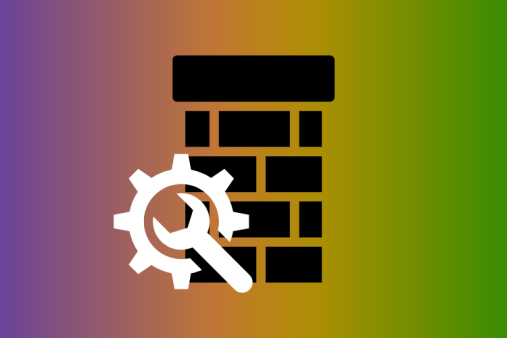A structural survey, also known as a Building Survey or RICS Home Survey Level 3, is an in-depth assessment of a property's condition, focusing on structural integrity and identifying potential defects. In the UK, the cost of such surveys varies based on factors like property size, age, location, and the survey's comprehensiveness. This article delves into the costs associated with structural surveys, outlines what they include, and explores alternative survey options available to homeowners, highlighting their average prices and differences in quality and cost.
Average Cost of a Structural Survey in the UK
The cost of a structural survey in the UK typically ranges between £630 and £1,500, depending on various factors. For instance, a structural survey for a property valued at £100,000 may cost between £600 and £650, while for a property worth £200,000, the cost can be around £650 to £700. As the property's value increases, the survey cost can rise accordingly, potentially reaching £1,000 or more for properties valued between £400,000 and £500,000.
Factors Influencing Structural Survey Costs
Several factors can affect the overall cost of a structural survey:
-
Property Size: Larger properties require more time for thorough inspection, leading to higher costs.
-
Property Age and Condition: Older properties or those in poor condition may necessitate a more detailed examination, increasing the survey duration and cost.
-
Property Value: Surveyors may charge more for higher-value properties due to increased liability and insurance considerations.
-
Location: Survey costs can vary by region, with services in London and the South East typically being more expensive than in other areas.
What Does a Structural Survey Include?
A structural survey provides a comprehensive analysis of a property's condition. Key components typically covered in the survey include:
-
Detailed Examination: Assessment of all accessible areas, including walls, roofs, floors, windows, and doors, to identify structural issues or defects.
-
Building Materials Assessment: Evaluation of the materials used in construction and their current state.
-
Defect Identification: Identification of both major and minor defects, their causes, and potential consequences if not addressed.
-
Repair Recommendations: Suggestions for necessary repairs, maintenance, and estimated timelines for addressing identified issues.
-
Moisture Assessment: Checking for signs of dampness, condensation, or mold, and identifying potential sources.
-
Insulation and Ventilation: Evaluation of the property's insulation and ventilation systems.
-
Services Inspection: Basic assessment of services like electrical systems, plumbing, and heating, though detailed inspections may require specialists.
Alternative Survey Options
Homeowners have several survey options to choose from, each varying in scope, detail, and cost:
-
RICS Home Survey Level 1 (Condition Report):
- Description: The most basic survey, providing an overview of the property's condition, highlighting significant issues but without detailed analysis.
- Suitable For: Newer properties in good condition.
- Cost: Typically ranges from £300 to £900.
Continuing with the breakdown of alternative survey options:
-
RICS Home Survey Level 2 (HomeBuyer Report):
- Description: A more detailed survey than the Level 1 Condition Report, including an assessment of visible and accessible areas. It highlights defects that could affect the property's value and suggests potential repairs.
- Suitable For: Properties built within the last 100 years that are in reasonably good condition.
- Cost: Typically ranges from £400 to £1,000, depending on the property's size and location.
-
RICS Home Survey Level 3 (Structural or Building Survey):
- Description: The most comprehensive type of survey, covering structural integrity, construction materials, potential issues, and recommendations for repairs.
- Suitable For: Older properties, period homes, buildings with unusual construction, or properties in poor condition.
- Cost: Typically ranges from £630 to £1,500, with larger or high-value properties costing more.
-
Specific Structural Survey:
- Description: Conducted by a structural engineer, this survey focuses on particular structural concerns, such as subsidence, cracks in walls, or roof stability.
- Suitable For: Homes with visible structural concerns or where lenders require a structural assessment before approving a mortgage.
- Cost: Typically ranges from £750 to £2,000, depending on the complexity of the assessment.
Comparing Survey Options: Cost vs. Quality
| Survey Type | Cost Range | Level of Detail | Best For |
|---|---|---|---|
| RICS Home Survey Level 1 | £300 - £900 | Basic | Newer homes in good condition |
| RICS Home Survey Level 2 | £400 - £1,000 | Moderate | Standard homes under 100 years old |
| RICS Home Survey Level 3 | £630 - £1,500 | Comprehensive | Older homes, unusual buildings, or properties in poor condition |
| Specific Structural Survey | £750 - £2,000 | Focused on structure | Properties with suspected structural issues |
Factors Affecting the Cost of a Structural Survey
Several elements influence the price of a structural survey, including:
- Property Age and Size: Older and larger properties require more time to assess, increasing costs.
- Extent of Investigation Needed: If invasive testing or additional assessments (such as drainage surveys) are required, costs will be higher.
- Geographical Location: Surveys tend to be more expensive in London and the South East.
- Surveyor's Experience and Qualifications: Highly experienced surveyors or those with specialist qualifications may charge premium fees.
Choosing the Right Survey
Homeowners should consider the following when deciding which survey to undertake:
- Purpose of the Survey: Are you buying a home, selling, or investigating a suspected problem? A HomeBuyer Report is sufficient for most purchases, while a Structural Survey is essential for older or non-standard properties.
- Budget Considerations: If cost is a key factor, a HomeBuyer Report may be the best balance of affordability and detail.
- Condition of the Property: A newer property may only need a basic survey, while older homes benefit from in-depth analysis.
Conclusion
Structural surveys play a crucial role in property transactions and maintenance, ensuring that potential defects are identified before they become costly problems. While prices vary based on factors like location, property size, and survey type, investing in the right survey can save homeowners thousands in future repairs. By understanding the available options and their costs, homeowners can make informed decisions that best suit their needs and budgets.







